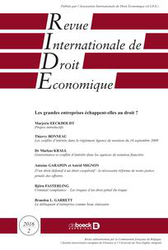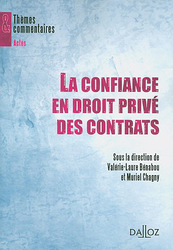Compliance and Regulation Law bilingual Dictionnary

First of all, the Regulation and Compliance Law is difficult to understand in others languages than English, through translation, for example in French. This corpus of rules and institutions suffers from ambiguity and confusion because of its vocabulary of Anglophone origin, in which words or expressions that are similar or identical have not the same meaning in English and, for example, in French..
To every lord all honor, this is the case for the term "Regulation".
In English, "regulation" refers to the phenomenon which the French language expresses by the term "Régulation". But it can also aim at the complete fitting of what will hold a sector reaching a market failure and in which regulation is only one tool among others. The expression "regulatory system" will be used with precision, but also the term "Regulation", the use of the capital letter indicating the difference between the simple administrative power to take texts ("regulation") and the entire system which supports the sector ("Regulation"). It is inevitable that in a quick reading, or even by the play of digital, which overwrites the capital letters, and the automatic translations, this distinction of formulation, which stands for a lower / upper case, disappears. And confusion arises.
The consequences are considerable. It is notably because of this homonymy, that frequently in the French language one puts at the same level the Droit de la Régulation ("regulatory law, Regulation") and the réglementation (regulation). It will be based on such an association, of a tautological nature, to assert that "by nature" the Regulatory Law is "public law", since the author of the reglementation (regulation) is a person of public law, in particular the State or Independent administrative authorities such as Regulators. There remains the current and difficult justification for the considerable presence of contracts, arbitrators, etc. Except to criticize the very idea of Regulatory Law, because it would be the sign of a sort of victory of the private interests, since conceived by instruments of private law.
Thus two major disadvantages appear. First of all, it maintains in the Law of Regulation the summa divisio of Public and Private Law, which is no longer able to account for the evolution of Law in this field and leads observers, notably economists or international Institutions, to assert that the Common Law system would be more adapted today to the world economy notably because if it does indeed place administrative law, constitutional law, etc., it does not conceive them through the distinction Law Public / private law, as the Continental system of Civil Law continues to do.
Secondly, no doubt because this new Law draws on economic and financial theories that are mainly built in the United Kingdom and the United States, the habit is taken to no longer translate. In other languages, for example, texts written in French are phrases such as "le Régulateur doit être accountable".
It is inaccurate that the idea of accountability is reducible to the idea of "responsibility". The authors do not translate it, they do not recopy and insert it in texts written in French.
One passes from the "translation-treason" to the absence of translation, that is to say to the domination of the system of thought whose word is native, here the U.K. and the U.S.A.
One of the current major issues of this phenomenon is in the very term of "Compliance". The French term "conformité" does not translate it. To respect what compliance is, it is appropriate for the moment to recopy the word itself, so as not to denature the concept by a translation. The challenge is to find a francophone word that expresses this new idea, particularly with regard to legal systems that are not common law, so that their general framework remains.

Updated: Feb. 25, 2025 (Initial publication: Nov. 8, 2023)
Publications

🌐follow Marie-Anne Frison-Roche on LinkedIn
🌐subscribe to the Newsletter MAFR Regulation, Compliance, Law
🌐subscribe to the Video Newsletter MAFR Surplomb / Overhang
🌐subscribe to the Newsletter MaFR Droit & Art
____
 ► Full Reference: M.-A. Frison-Roche, Vigilance, the cutting edge and a full part of the Compliance Obligation, Working Paper, November 2023, updated in February 2025
► Full Reference: M.-A. Frison-Roche, Vigilance, the cutting edge and a full part of the Compliance Obligation, Working Paper, November 2023, updated in February 2025
____
📝 This Working Paper is the basis of the article, "Vigilance, the cutting edge and a full part of the Compliance Obligation Vigilance" (Vigilance, the cutting edge and a full part of the Compliance Obligation), published in 📘Compliance Obligation
____
► Summary of this Working Paper: The "duty of vigilance" unleashes all the more radical and passionate positions, sometimes among Law professors, because it has not been precisely defined. One word is used for another, either inadvertently or deliberately, deliberately if it can attract this or that element from one legal corpus and import it into another. The very exercise of definition is therefore required in practice. There are specific obligations of vigilance that come under such and such a body of regulations and are imposed on such and such a category of operators to fulfill such and such a function. These are precise circles which are not confused and must not be confused. This is superimposed on what the French 2017 law so-called "Vigilance law", which is much more encompassing since it applies to all large companies in the operation of the value chains they have set up. The European 2024 directive is in the same way. But there is no general duty or obligation of Vigilance. Such a claim would be based on confusing or shifting each of these 3 levels, which must be avoided because no positive law does support this (I).
If the duty of vigilance is attracting so much attention, whether or not the European CS3D is fully effective, it is because Vigilance is the "cutting edge" of Compliance Obligation (II). Vigilance requires companies, by consideration of their power and without reproaching them for it or demanding that it be reduced, to detect risks of damage to the environment and climate, but also to human rights, because they are in a position to do so in order to prevent them from turning into disasters. In this respect, the Vigilance duty makes clearer the exact legal nature of the Compliance Obligation.
Moreover, Vigilance appears as the Total Part of the Compliance Obligation (III). Indeed, although it is restricted to one area, the value chain, and to two types of risk, deterioration of the environment and deterioration of human rights, it expresses the totality of the Compliance Obligation by means of tools that the 2017 French "Vigilance law" had itself duplicated from the 2016 so-called "Sapin 2 law": to preserve systems today, but above all tomorrow, in order they do not collapse (Negative Monumental Goals), or even consolidate them (Positive Monumental Goals), so that the human beings who are willingly or unwillingly involved in them are not crushed by them but benefit from them. This is why large companies are subject to the Obligation of Compliance and Vigilance, particularly in the humanist conception that Europe is developing.
The result is a new type of Litigation, of a systemic nature, for which the Courts have spontaneously become specialised, and for which the procedures will have to be adapted and the office of the Judge shall have to evolve.
_____
🔓read the developments below⤵️
Updated: Nov. 30, 2016 (Initial publication: Sept. 29, 2016)
Publications

► Full reference: M.-A. Frison-Roche, "Le Droit de la compliance" ("Compliance Law"), D.2016, Chron., pp.1871-1874.
____
► English Summary of the article: Constraints weighing on companies in terms of Compliance multiply and get heavier. But the notion is contradictory, uncertain, "strange", the expression of "conformity" being only a transposition in French.
Compliance appears today as the world internalisation of a public regulation, often conceived in the United-States, in firms, transformed in effectivity agents of global monumental goals: competition equity, fight against terrorism or States deemed unworthy (embargos).
Rather than borrowing scattered solutions, it is essential to build a "Compliance Law", properly European, to which everyone will be accountable.This new branch of Law is built teleologically on its Monumental Goals. It is driven by crucial businesses. The Judge is at its centre.
____
📝read the article (in French)
____
🚧Read the bilingual Working Paper on the basis of which the article was written.
June 16, 2016
Thesaurus : Doctrine

Référence complète : Eeckhoudt, M. (dir.), Les grandes entreprises échappent-elles au droit, Revue Internationale de Droit Économique (RIDE), 2016/2,De Boeck, (introduction, par Marjorie Eeckhoudt, p. 151-163.).
Les étudiants de Sciences po peuvent lire l'article via le drive dans le dossier "MAFR - Régulation" les différents articles qui constituent le dossier.
L'auteur présente dans l'introduction le dossier consacré à l'articulation entre la compliance et la responsabilité pénale.
Elle y voit l'importation du droit américain dans un "copier-traduire-coller". Elle y voit à la fois la puissance du droit et un moyen pour les grandes entreprises qui multiplient les chartes d'échapper aux droits nationaux.
Elle estime que cela participe des "divers instruments de la régulation", assistant notamment à un retour de la réglementation, par exemple à propos des agences de notation et la règle comply or explain.
Or, "compliance rime avec indépendance" (p.158) et l'agence de notation n'est pas toujours indépendance de son client : c'est pourquoi le conflit d'intérêts est au cœur de la compliance. "compliance rime avec transparence" (p.158).
L'auteur explique le souci d'efficacité guide aussi désormais la responsabilité pénale, à travers la négociation pénale ou l'accueil du lanceur d'alerte. Mais l'efficacité n'est encore la mieux servie en matière de sanction.
Dans ce dossier voir aussi :
BONNEAU Thierry, Les conflits d'intérêts dans le règlement Agence de notation du 16 septembre 2009.
KRALL Markus, Gouvernance et conflits d'intérêts dans les agences de notation financière.
FASTERLING Björn, Criminal compliance - Les risques d'un droit pénal du risque.
GARRETT Brandon L., Le délinquant d'entreprise comme bouc émissaire.
_____
April 16, 2008
Thesaurus
